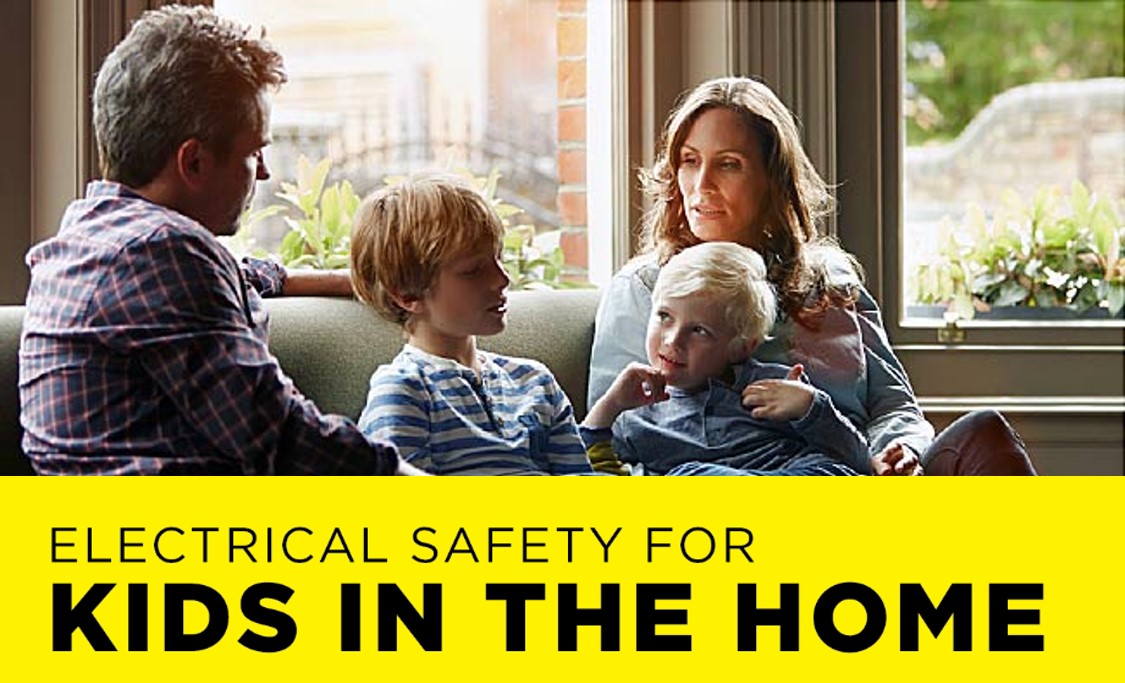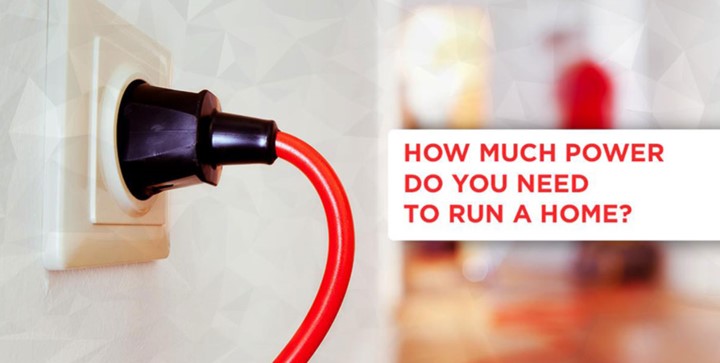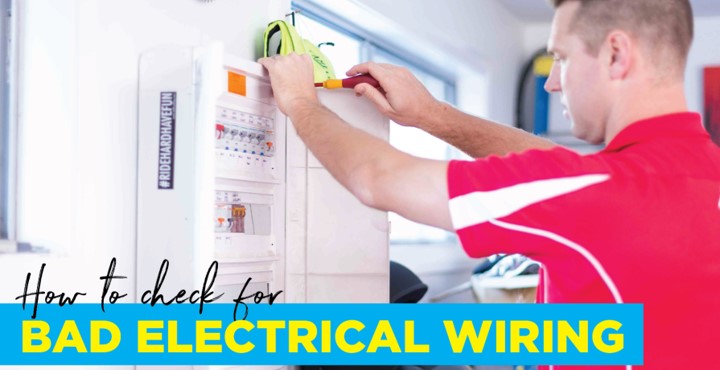Electrical Safety for Kids in the Home

As your child grows, teaching them how to be safe around electricity is essential to protect not only themselves, but also your electrical appliances and your home’s electrical circuit. Electricity should not be feared; however, it needs to be respected from a young age and treated properly to avoid any problems.
Accidents happen often and when we least expect them to – sometimes with fatal consequences. Here are some things you can teach your child about electrical safety around the home – so you can prevent electricity-related accidents.
Water and electricity safety
Teach children that water and electricity don’t mix. This means telling them that you shouldn’t take plugged in electrical items like music players and heaters into bathrooms, kitchens, pool areas or other places where water is present.
When it comes to electrical appliances that are meant to be used in the bathroom (such as the hair dryer), make sure you stress the importance of having an adult present in order to use them. In addition, show them that before using such appliances, the toilet lid should be down (so the dryer cannot fall in) and that the tap isn’t turned on.
Lastly, if your child is old enough, try to explain the why: Tell your little one how our bodies are made of a lot of water and salt so electricity passes through us easily and can cause us harm.
Remind children to never touch electrical or metal things with wet hands as they can get an electric shock. This means that when they get out of the bath or shower or wash their hands, they need to dry everything thoroughly before touching electrical equipment, metal taps or power plugs and switches.
In addition to not touching electrical appliances when wet, tell your child to avoid putting drinks or liquids on top of electrical appliances, such as a video game console or a laptop that’s being charged.
Let your child know as well that swimming during a thunderstorm is also not advisable. Explain that lightning is pure electricity, and that water can attract it – so no swimming until the storm has passed.
Electrical sockets, cords and cables
The number one rule to abide by is: Never put things into electrical sockets – especially if they are made of metal. If you are worried your child may do this, then you can buy safety caps to put in the holes.
Show your child how to pull a plug out safely. For this, you should grasp the plastic part close to the wall instead of pulling on the cord itself, without ever touching the metal. Pulling the cord can damage the plug, appliance or outlet.
It’s important not to leave electrical cables on the ground where they might be tripped on or damaged. Enforcing this rule is a good way to keep your child’s room tidy!
Also, be careful not to overload power boards or adaptors. These items can overheat and cause a fire. In addition, make sure that any extension cord you use has a safety switch.
Teach your little one how to spot faulty or damaged cords. If the plastic has worn out and the cables on the cord are visible, tell your child that the cord shouldn’t be touched or handled, and that they should let you know so it can get fixed.
Always keep electrical wires and appliance cords away from heaters and be sure to turn the lights off before changing a bulb. Tell your child to never attempt to change a lightbulb by themselves.
Electrical item care
Teach your child to turn off electrical items when they are not using them. This goes for toys, TVs, computers, music players and more. It will reduce the risk of an electric shock and save you money on power bills in the process!
Kitchen safety
In the kitchen, explain that some items can only be used if a grown up is around to help. This could go for microwaves, ovens and kettles.
Even though they shouldn’t operate it by themselves, explain to your child how metallic objects (including foil) can never go in the microwave, as they could cause an explosion.
Remember never to stick anything metallic in the toaster (such as cutlery). To
get the bread out of the toaster or remove anything that might’ve gotten stuck
there, use silicone or wooden tongs.
Taking the necessary precautions when it comes to electrical safety for kids in the home is crucial in order to avoid accidents from occurring. Electricity can be unpredictable, and so can kids – so it’s important that you don’t only take the precautions yourself, but also educate your child on electrical safety as soon as they are old enough to understand, so they learn how to respect and properly behave around electricity.






